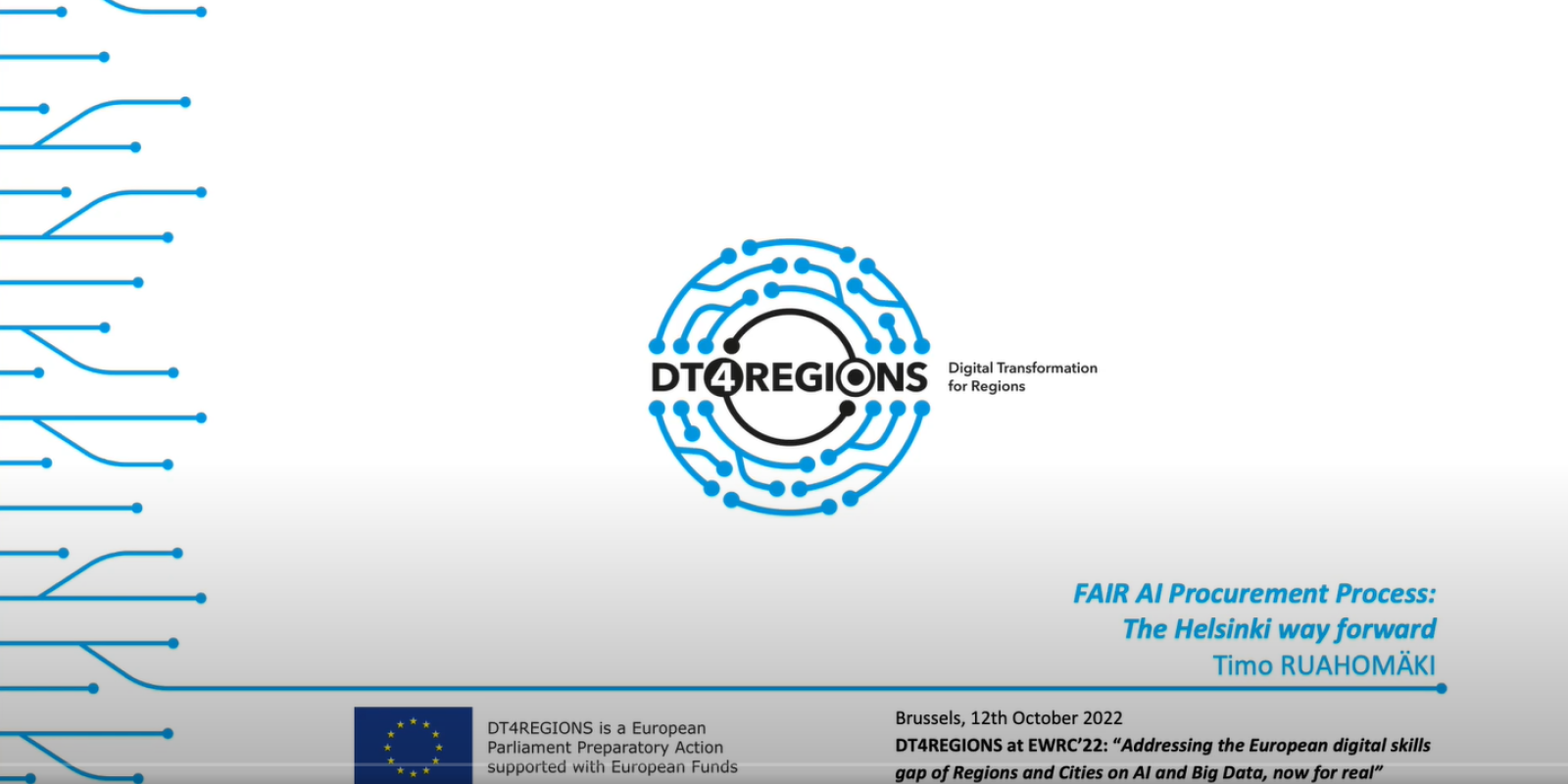FAIR AI procurement process: the Helsinki way forward


Mr. Timo Ruohomäki, from Forum Virium Helsinki, to present his contribution on the Helsinki’s way forward to a FAIR AI Procurement process. The first part of the presentation focused on how to build trust with transparency. The City of Helsinki AI Register2 from Helsinki was explained, as a fundamental part of the fact that when we get AI it is embedded in products and services, and for that reason it is necessary to be transparent. In addition, this has to be explained in a way that lay citizens can understand. The Helsinki AI Register satisfies these two functions. The second part developed the innovate procurement, using as reference the case of AI4Cities, particularly using an EU instrument called Pre-Commercial Procurement (PCP)3, but it is not limited to this instrument and it could as well use Innovative Funding Instruments or creating our own Innovative Procurement instruments.
The process is divided in 4 phases (design, prototype, testing and promotion), starting from a problem or challenge statement, within the Mobility and Energy domains, asking for solutions as an innovative service, and using AI to tackle the challenge. In the first phase, a small amount of funding was available and a set of 20+ suppliers were selected. In the second phase actual real-life prototypes were created using real data, with a reduced number of companies but significant funding. For the final phase, the actual prototype testing takes place. It is not necessary to ask for AI in-a-box but tackling the problem in order to find out where AI is needed and how, thus allowing companies to have the right chance to innovate. For the mobility challenge the following sub-challenges were presented:
- Mobility-as-a-Service,
- Traffic flow optimization,
- Optimization and logistics, and
- Wild card.
Wild cards allow for external sub-challenge identification from the companies. The piloting phase (third phase) embodies three general targets, namely:
- A proven CO2 emission reduction,
- The explicit benefits that the use of AI provides, and
- The replicability and relevance for the cities.
The final stage (Phase 4) focuses on promoting PCP results for interested parties. Finally, evaluations tools were pointed out for the general assessment of solutionsin the context of AI4Cities.




